Coming forth from the wagon, Alberto noticed a huge flock of birds descending upon the surrounding mountain trees. Vast and dark in flock, the winged ones alighted upon branches, disappearing amongst leaves; silent, an unseen legion of unknowing witnesses. The diminutive castle, ancient in appearance, harmonized with its surrounding, appearing as if the creator of the mountain created the castle itself. ‘Quaint’, Alberto thought, ‘he has his own castle and tower’. An admirer of no homes, entering, he admired the miniature Mount Subasio fortress. Blindfolds removed, the young women stood within. They did not appear disturbed, yet they would not speak. They knew the disdain Montaninus possessed for them. The man would sink a blade into their heart as soon as look at them. The wicked knew well the ways of evil intent, sensing wicked presence precisely.
“Montaninus you gratuitously bring Man Tower to my humble maternal tower, the mother of my elderly years—I think of my home as my mother. I draw to a close my life through a concentration upon birth. A proper birth needs a mother. My home provides, a father in waiting divides. The comfort of the creator enticing within. The seeker follows. The Lord is God, the mighty God, the great king over all the gods. He holds in his hands the depths of the earth and the highest mountains as well. He made the sea; it belongs to him, the dry land, to, for it was formed by his hands. The birds egress from their northern lairs. I am sure you noticed them. They find rest once more in the mountain forest I call home. It is a good sign. They perched as you arrived. They watch, intending protection for our meeting. My guardian angel is with them, lifting their wings. Your guardian angel is amongst them also Man Tower. She is a cherub, barely able to perceive due to the burden of many tears and her attention constantly affixed upon the Almighty. You should take greater heed of your little protector knight of no mercy. Tell me what is happening, Man Tower, for I feel a child is born, a baby you observed being baptized. You saw something. You saw a gifted baby for all. The days immediately following the Epiphany octave; the day of Our Lord’s baptism in the River Jordan by the saintly John—one who would dare to identify him as the sacrificial lamb of the Old Testament, the visitation of the magi—kings of the gentile world knowing and honoring. There was a terrible three day wind storm after the baptism of the baby you observed. The forces were so strong trees were uprooted throughout our homeland; men and animals killed in the obliteration. All things are a sign unto themselves and the world enveloping them. I have been meditating upon all this, contemplating deeply the mysteries you present, and the mysteries presented to you. Totality includes individual welfare within the greater battle and your battles are so intense. The Benedictines at Mount Cassino communicated to me the entirety of events through a winged messenger. We share an affinity for messenger doves. God is screaming and we share the news a thousand years after the death of his son. God has placed amongst us one to renew the spirit, one to enflame the heart, one to open ancient doors while closing contemporaries, a thousand years is too long. One is here to bolster the collapsed church, lifting it from the muck and mire of centuries of waywardness. A thousand years have passed and still we are left wanting, longing for love. No one needs to declare it has been over a thousand years since Our Lord’s departing and resurrection, since the news is so startling in silence, conspicuous in the absence of a second coming. His return waits, patience perseveres, while temptations assault. The ways of God are stern; similar to yours, mighty killer of the battlefield. The gift God sends displays his power. The baby will parch the earth, burning from it foulness. Immediately years of famine will result, suffering for over five years, struggling to feed one another families will be ripped asunder. Many will die. The elderly crossing over before their allotted time, the children crying to the distress of their mothers, the sick being consumed by their illness due to a lack of strength, all suffering as they self-righteously convince themselves they should not suffer. Suffering will become a means of rebellion, discernment is poor amongst the rabble. It always has been thus the need for prophets and the crucifying of a Divine Son. There will be five plus years of cleansing through famine.”
The overwhelming prodigious words of the old man descended, seemingly coming from the castle itself. The elderly man and his space were as one, his words coming forth from his surroundings. All at once, slowly intense, in the manner of casting a spell, the old man spoke his words as if he drew them from his creation, his home. Wearing the black and white vestments of a Cistercian monk, he circled Alberto, placing his right hand upon his back, rubbing to create friendliness, the easing of tension. Alberto slipped into a battle trance, absorbing the assault of words, the immensity of profound ideas rapidly rained upon him. Clearing his mind of distractions, as he would upon the battlefield, his awareness focused into acute perception, holding not to ideas, rather opting for intuition.
“So here is Man Tower. Much is spoken of you. It is good I do not honor words, words are for those who desire to manipulate. I have grown into an aged man who understands the heart. For where a man’s heart rests, there rests his treasure. The mysteries of life intrigue me more than the gossip and scheming of man. The sight of many is limited. The sight of one alone, amidst the ancient, solely answering to Christ, discerning proper advice, can penetrate piercingly. We will spend time together. There is more. Now though I must spend time with my beloveds, my sweethearts who fill my life with joy.”
The two young ladies, giggled, one of them walking to Enzio the Wise with a limp that previously did not exist.
“Papa it is so good to see you. Your little sunshine has been miserable, overwhelmed by sadness. My heart rejoices in your presence. In such a cruel world, you are a refuge of the greatest kindness and giving.”
“We missed you so much.”
“Your leg my darling, what has happen to you?”
“It is nothing my honor. You must not think of it. You are older, in need of greater comfort than me. How is your health? Are you feeling fine? It is you who should receive caring attention.”
“No. It is not about me. Your leg? It is awful the way you walk. I must know, tell me young pretty one. If I could, I would reach up to the sky and bring the clouds down for you. Mountains I would smash, if they dared to present themselves as an obstacle. Waters I would divide in order to allow your passing. Anything I could do, I would do for you. You are my sunshine and without your rays of exquisiteness I wallow in sorrow.”
“I hurt my leg servicing my family. My mother is sick and now her sister and her children live with us. I have to care for all of them. Cleaning, cooking, bathing the old and young, male and female, I must care for them all. You know my father was killed in war. I try my best kind noble sir, yet I stepped in a hole while carrying water and damaged my leg. It is nothing. I will suffer through it. It is enough to see your kind face and know in the world goodness lives.”
“You give me too much credit. It is you that brings joy. You work so hard for your family. You give so much for others. If I could only do more for you, ease all of your burdens. Yet it is not for me darling. Thy will be done. Only one purpose exists for you. Becoming a saint is your calling in life, the attainment of heaven your sole concern. The underprivileged have nothing more to do than focus upon salvation. It is a rite of passage. The nobly wealthy carry responsibility, yet all are burdened with accountability.”
The other young lady approached the staunchly posed Enzio.
“Sir it is good we came to you at this time for I also have troubles. My husband to be, the man I have told you so much about, has run off with a woman of ill repute, a wench of drunkenness and ill begotten ways. I loved him since childhood. I thought he would be a good husband, yet he could not refrain from evil ways. I am embarrassed to tell you the news. I am a fool. Too easily, I give my heart away. The wretched man robbed my father before leaving for unknown lands with the trull. I know not what to do. My errors have cost my family their reputation. I considered suicide, convinced it is the only solution. I prepared to throw myself from a bridge into the Chiagio when my sweet friend, in all the pain she suffers, persuaded me to seek your wisdom. And my father, my lord, I could not bring the shame of leaving him to the wicked tongues of neighbors. Even enduring the harshest of cruelties, a daughter breaks her father’s heart by the taking of her own life. Cowardly escaping into death only means further misery due to the reality I would be betraying those who cared for me as an infant. In your company, once again, I find comfort, yet left to my own devices I allow terror to seize my life.”
“Oh my sweet children. Both of you, my lovelies, endure pain that reaches deep into the depths of your souls. Never underestimate the malice of the wicked one. He thrills in your demise. He wants to see you tormented. God only desires happiness for you. Come let us go inside and sit by the fire, consoling one another. We are together. We have one another to inspire joy, to lift each other’s heart to Our Lord. I will read you some scripture, poetry, and tell you stories of my youth. I can tell you how I was able to overcome obstacles placed in my path. You can tell me stories of your childhood. I love stories of animals and discovery. Possibly, I can inspire you, lead you closer to God. It is my heart’s sole intent. Through the realization of my heart may you find the strength and solace necessary to manage the travesties of life. Inside, there is hope. Inside, there is charity. Inside, there is faith.”
“My kind dignified sir your words always arouse faith, hope and charity, however at this time I also need other assistance.”
“Why of course angel. Treasures I can and will supply. Both of you must know I will always be there for you.” Enzio addressed Alberto. “Man Tower explore my land. It prepares for glorious bloom. It will also prepare your soul for our words together. I must care for these sweet children of God. I will ring the bell in time, calling you to come for food and conversation. Montaninus show our esteemed guest about.”
The elderly one escorted the two pretty young women into his home. It seemed the two were trying to outdo each other in the amount of tears they could shed. Alberto watched in amazement. Damning Enzio earlier in the day, the young ladies now expertly portrayed innocent victims confronted by heartrending experiences. Within the tavern it was obvious what the two were. They were harlots; women of song, wine, men and nights of excess, entertaining at the tavern, leading bawdy drinking songs and dancing for the drunkards. Boyfriends multiplied.
“It is best not to judge Alberto. It only confounds to consider his behavior with those young ladies. The younger one has a hateful heart, which grows harder with every visit. I watch her closely, fearing she will explode in violent behavior. I have warned Enzio, yet he says I worry too much. He is truly one of wisdom. It is a strange game he plays with them. I will show you his water garden. You can witness his brilliance. This matter regarding the two young ladies I cannot understand. I have tried to convince him of their true nature. He will not listen, declaring them to be blessed children of God.” Montaninus strode to the entryway. “Let us see if we can find the wolf pack. I think you will enjoy observing them. Never have I seen wolves the size of those that stalk the lands of Enzio.”
Alberto could hear the water falling before he was able to see the magnificent site. The old man managed to divert a stream, forcing the water to flow over self-created rocky formations. The cascading series of step-down waterfalls, shimmering with whiteness in its plummeting, emptied into standing water, a pond. Disregarding his clothing and footing, Alberto walked amidst the water, admiring the lovely sound and beautiful images. Birds gathered as trout swam in the crystal clear pond water. Plant life flourished, providing a canopy over various spaces. A woodchuck slept in one of the rocky cubby holes; a bevy of lotuses blossoming a top their leaves sunning beneath. Squirrels pranced within the trees and upon the ground. Alberto made his way to the center waterfall, the largest. Pouring over accumulated slab rock, uproariously, the water fell. Gravity pulling, the descending water showered a life-size crucifix carved from stone. Alberto penetrated the water, placing himself before Jesus’ dead body continuously washed. He realized up close, details of the statue were not highly defined. Shoreline viewing presented a blurred, vibrating, crucifix, hydrolysis shrouding. Up close, nothing more defining could be attained. Alberto moved completely underneath the water, running his hand over the crucifix. He wished Riccio could witness the wonderful chiseling. His squire taught himself to be a skillful carver. He would appreciate the old man’s artwork. Alberto thoroughly soaked himself, cleansing himself underneath the water. The water was cold, increasing in flow the past several days due to an increase in higher elevation snow melting. Feeling the bite of the bitterly cold water, he was thinking of Ricco. The young man, he no longer thought of as a boy. The killing of the bull made him proud.
The time with his mother and training Ricco lifted Alberto from the alienation he so deeply entrenched during his time under Barbarossa, throughout his whole life. Amongst many, he was alone. Amidst his armor, violent extremes became a sheltering reality. Establishing a beastly state, he manically pursued status as the cruelest of knights. Constraints lifted, lucidity intact, he freed himself to do evil, placing the mask of victimhood over his soul. He opened doors his deranged childish mind feared not in the least. Death meant nothing. Once open, doors that should have never been opened would not close. There were consequences. Negative energy, forces of evil, poured through. The wounded child became an authentic wicked man; the innocent one attaining the inhuman through time and hate. The innocence that allowed him to give birth to his wounded thoughts and actions was eradicated in the aftermath. Communication never a strong characteristic for Alberto as a child, it became impossible as he transformed into the Man Tower, or the Fierceness of Silence as Montaninus called him. There were other names: the Ravager, the Vanquisher, as well as Polyphemus.
Underneath the manmade waterfall, resting against the crucifix lacking detail, Alberto bathed under the falling water, giving no consideration to the souls in purgatory burning through coldness in God’s presence. He stripped himself of all clothing. The cold water soothed. Moments amassed to this moment. Peace managed to emerge. Stripped down in clothing, lacking armor for years, teaching one dependent upon him, easing a mother into death, malleability emerged. Now he cleansed in the old man’s waterfall. Montaninus watched, understanding to a certain degree. Here was the extreme knight he knew from warring days, an unpredictable man prone to abnormal behavior, seeking a loftier existence, a temporal warhound mystic.
Slightly annoyed, Montaninus realized he would have to attain clothing for the giant. He wanted to search out the wolves and Man Tower could not go naked, or in soaked clothing. He made his way into Enzio’s home, remarkably able to find an oversized monk’s robe similar to the style Enzio wore. In various sizes, the strange old man stocked over twelve of the robes. Montaninus never noticed the fact before. Returning to the water garden, he found Alberto still soaking underneath the falling water, positioned at the feet of the crucifix
“Let’s be off wild man. I want to find the wolves. You have to be freezing. Come now remove yourself from the water.”
Alberto obeyed, dressing himself in the robe.
“A monk’s habit?”
“It is all the old eccentric possesses.”
“I would like to see the wolves.”
“You are speaking? Did the cold water loosen your brain?”
Montaninus, also having adorned a monk’s robe, led the way as the men left the water garden and made their way into the forest. Hidden atop a cliff, Montaninus explained the excellence of the vantage point. He knew the forest from the days of his youth. His parents would send him to spend time with Enzio, learning scripture, and the ways of the old recluse. Within the hour, the two spotted something moving. Moving stealthy, they positioned themselves above the motion and in front of the advancement. The clearing they spied upon soon greeted the slow moving animal they tracked. It was an old horse, stumbling more than walking. Out of its right mind, the beast walked as if it was bound for its own funeral. As the feeble horse made its way toward the center of the clearing, a rushing noise followed by a chorus of growling burst upon the scene. The wolves made their appearance. Circumambulating before assuming attack positions, the wolves lowered their heads, bearing teeth in unison. The horse halted. Conceding to death, it hopelessly waited. The largest of the wolves, the size of a pony, moved forward.
Mesmerized by its raised lips and exposed savage teeth, Alberto marveled at the idea of being accompanied in battle by such a beast. He recalled the Roman Falvious Aetius, a general who led a remarkable halting of the advancement of Atilla the Hun in Gaul—superior numbers of horseback warriors staunched by a smaller number of riderless soldiers—engineering, siege engines, weaponry, proving the equal of the amassing of men and horses, Falvious rode with a wolf. The downing of the horse was over quickly, the tired beast never resisting, conceding to death before the first attack. The killing completed, Montaninus and Alberto watched throughout the feasting. The wolves fought ferociously amongst one another for prime feeding spots. Bloodied and sullied, they rested near the corpse once satisfied. The leader of the pack sat panting, looking about. His wandering eyes, passing by Montaninus and Alberto, paused. Standing, retracing his vision, sniffing the air, he studied the location of their hiding.
“Those are the wolves of Enzio. You witnessed them at their best. Their leader senses our watching. His stomach is full, he will do nothing. If he was hungry he would behave differently. He would wander in the opposite direction with the intention of circling back behind us. Enzio claims the wolves know him, leaving him alone. I know he walks through the forest with his walking stick unconcerned. Never has he encountered trouble. However, I say, with beasts like that calling the forest home, I would not be so brave. Let us be off. By now, the crazy old man should be through with the immature company. He is excellent with food. He will have something made, most likely a tasty stew and bread. Watching the wolves feast must have made you hungry. For a warrior, such is the case. The wolves remind me of you in battle: focused, thorough, and efficient.” Montaninus laughed at his own humor.

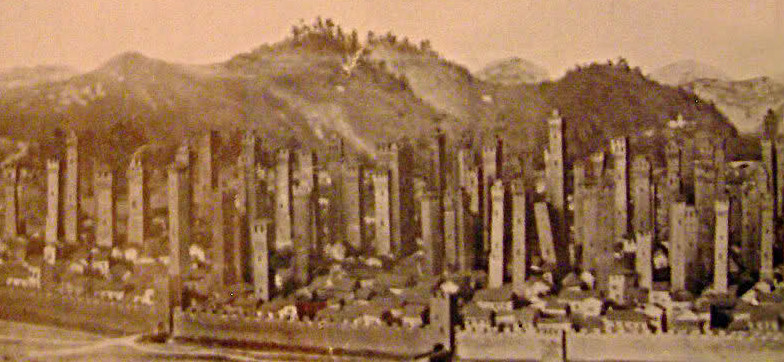

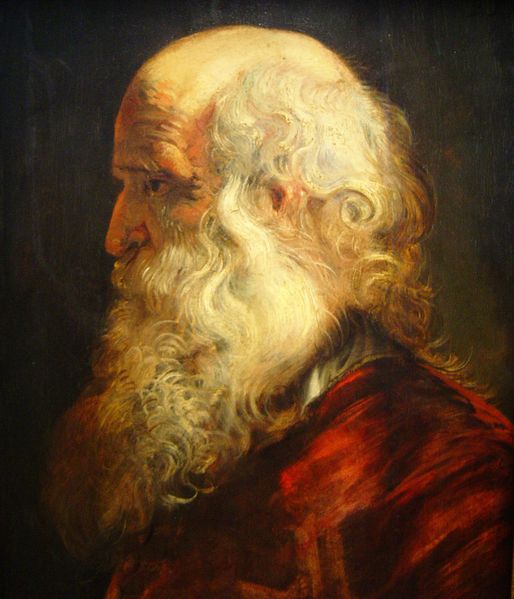
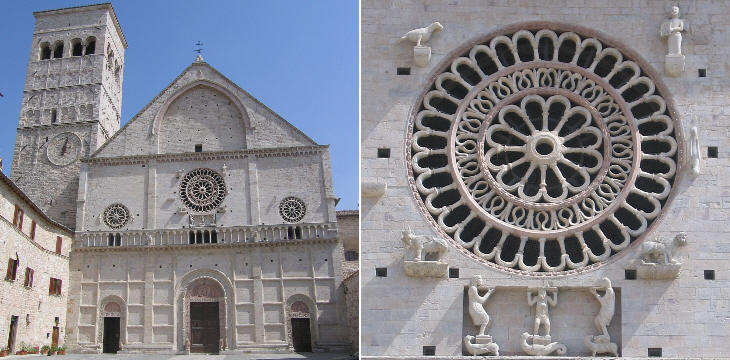
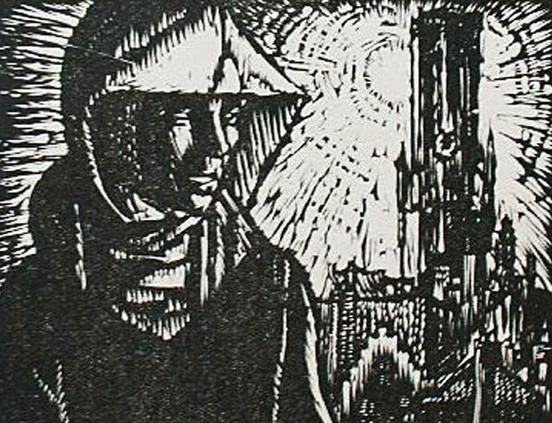
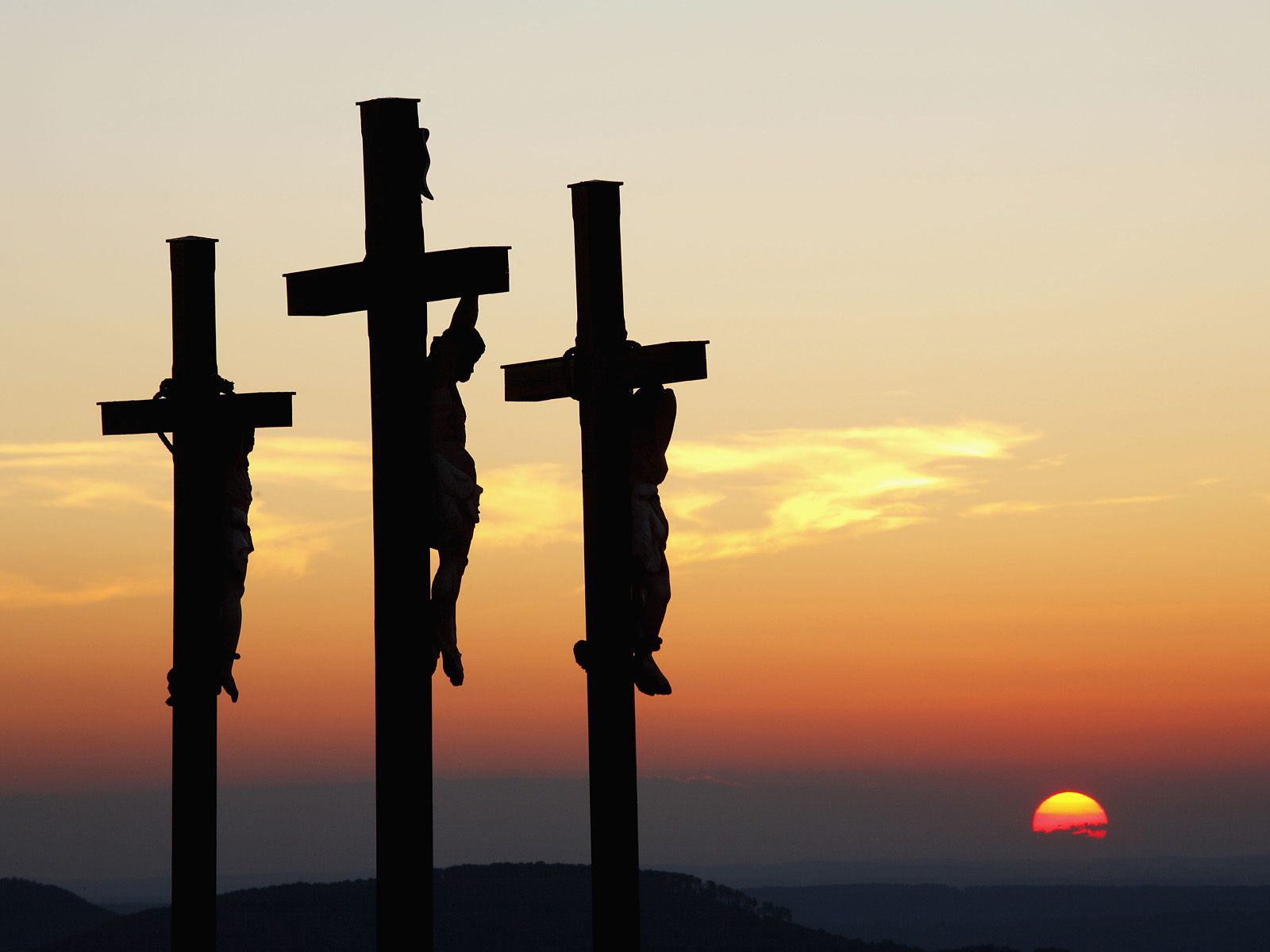
Recent Comments